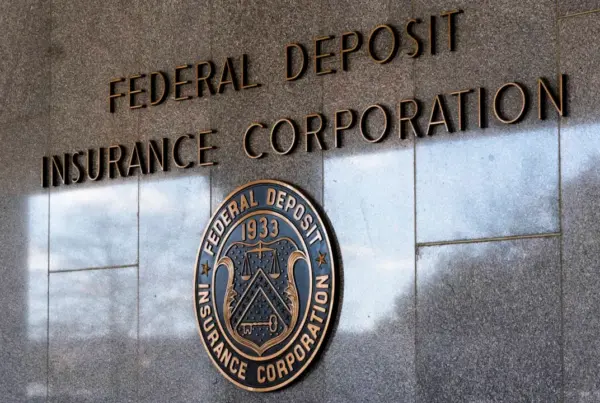FDIC’s Proposed Rules on Brokered Deposits: Key Insights for Financial Institutions
Introduction
On August 23, 2024, the Federal Deposit Insurance Corporation (FDIC) proposed significant regulatory changes concerning brokered deposits. This proposal is a pivotal regulatory action intended to bolster the banking system’s stability and safeguard depositors. The proposed rules aim to redefine the regulatory framework governing brokered deposits, which has faced increased scrutiny due to their associated risks, especially in recent financial instability cases affecting various banking institutions. Historically, regulation of brokered deposits evolved through amendments and enforcement actions, underscoring the need for clearer guidelines. The primary concern addressed by this regulatory action is the potential risk to the Deposit Insurance Fund (DIF), posed by the growing reliance on brokered deposits, particularly during economic uncertainty.
Key Regulatory Changes & Analysis
1. Expansion of the Definition of Deposit Broker
The proposed rule significantly broadens the definition of a deposit broker under Section 29 of the Federal Deposit Insurance Act.
- Previous Definition: Targeted primarily entities facilitating deposit placement.
- New Definition: Encompasses a wider range of entities involved in deposit placement activities, thus capturing more financial intermediaries.
This expansion is crucial as it increases the number of entities subject to regulatory oversight and compliance obligations.
2. Enhanced Reporting Requirements
The FDIC’s proposal introduces new reporting obligations for institutions accepting brokered deposits.
- Financial institutions must report the total amount of brokered deposits quarterly.
- Enhanced disclosures on deposit nature and brokers’ identities are now mandatory.
These measures aim to improve transparency and enable the FDIC to better monitor risks associated with brokered deposits.
3. Impact on Financial Institutions
The proposed regulations will significantly impact various stakeholders in the financial sector, including:
- Banks: Need for increased compliance costs and operational adjustments to align with new definitions and reporting requirements.
- Fintech Companies: Many fintech firms facilitating deposit placements may now be classified as deposit brokers, subjecting them to new regulatory obligations.
- Consumers: Changes might influence the availability and terms of deposit products offered, potentially affecting consumer banking service access.
Legal and Industry Implications
The proposed regulatory changes present several compliance challenges and potential legal risks for affected institutions:
- Compliance Burdens: Financial institutions may face additional operational costs to implement new reporting systems and ensure compliance with expanded definitions.
- Legal Challenges: The broader definition of deposit brokers could lead to litigation as institutions seek clarity on regulatory obligations.
- Regulatory Risks: Non-compliance with new rules could result in enforcement actions, fines, or deposit-taking activity restrictions.
Law firms and financial institutions should proactively assess their current practices and prepare for potential regulatory scrutiny to mitigate these risks.
Recommended Actions & Compliance Strategies
Affected parties should consider the following actions to ensure compliance with the proposed regulations:
- Review Internal Policies: Conduct a comprehensive review of current deposit placement practices to identify entities that may now be classified as deposit brokers.
- Enhance Reporting Mechanisms: Develop or update reporting systems to comply with new quarterly reporting requirements.
- Engage in Public Comment: Stakeholders are encouraged to participate in the public comment period to express concerns or suggestions, influencing the final regulatory framework.
Key Deadlines
- Public Comment Period: November 21, 2024
- Implementation Timeline: Institutions should prepare for compliance by January 20, 2025.
Conclusion & Next Steps
The FDIC’s proposed rules on brokered deposits signify a substantial shift in regulatory oversight, impacting a wide range of financial institutions. Stakeholders should prioritize compliance readiness and actively engage in the public comment process to shape the final rule. As the regulatory landscape evolves, institutions must remain vigilant and adaptable to potential changes. Monitoring further FDIC developments and preparing for these new requirements’ implementation will be essential to maintaining compliance and operational integrity shortly.


